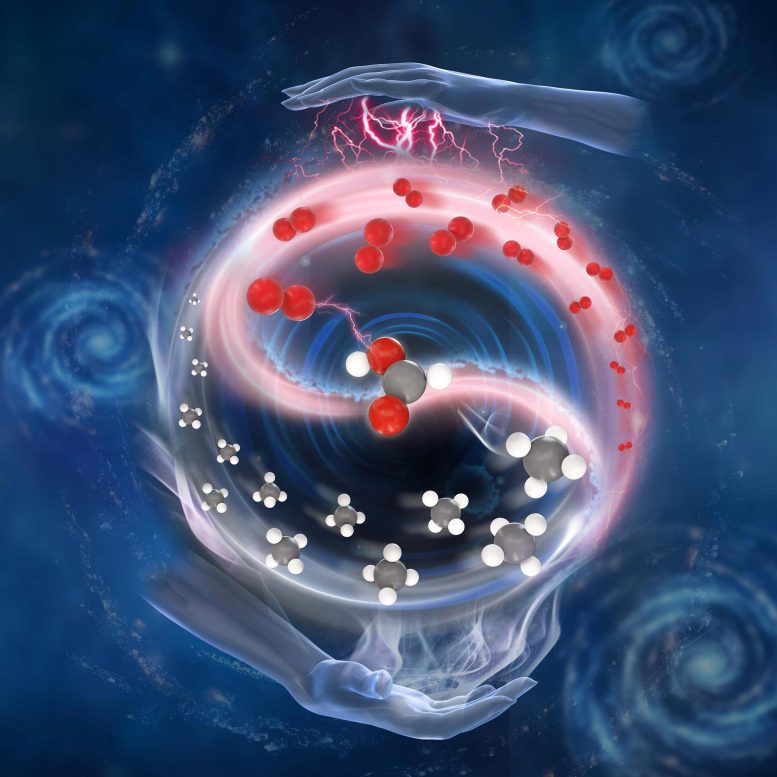

Researchers realize electrochemical conversion of CH4 and O2 to HCOOH at room temperature. Credit: JACS
A team from the Dalian Institute of Chemical Physics made a breakthrough in converting methane to formic acid using oxygen at room temperature through a high-pressure electro-Fenton process, achieving significantly higher efficiency and productivity than traditional methods.
Direct conversion of methane (CH4) and oxygen (O2) to value-added chemicals is important for natural gas industries. However, challenges remain due to the difficulty of O2 activation in forming active oxygen species for CH4 activation under mild conditions.
Recently, a research group led by Prof. Dehui Deng, Assoc. Prof. Xiaoju Cui and Liang Yu from the Dalian Institute of Chemical Physics (DICP) of the Chinese Academy of Sciences (CAS) realized the electrochemical conversion of CH4 by O2 to formic acid (HCOOH) at room temperature. This study was published in the Journal of the American Chemical Society.
The researchers developed a high-pressure electro-Fenton strategy to establish a hetero-homogeneous process for electro-catalytic conversion of CH4 by O2 at room temperature. They revealed that CH4 was efficiently activated by ·OH, which was produced via a heterogeneous electroreduction of O2 to H2O2 on the Ag foil cathode, followed by a homogeneous Fe2+-facilitated H2O2 decomposition.
Besides, the researchers found that the elevated pressure not only improved the productivity of H2O2 from O2 electro-reduction but also boosted the reaction collision probability between CH4 and active ·OH in-situ generated from Fe2+-facilitated decomposition of H2O2.
Compared with the traditional electro-catalytic CH4 conversion process with high overpotential (>0.9 V) and low Faradaic efficiency (< 60%), the high-pressure electro-Fenton process achieved an HCOOH Faradaic efficiency of 81.4% with an ultra-low cathodic overpotential of 0.38 V. The HCOOH productivity was 11.5 mmol h-1 gFe-1, which was 220 times that of ambient pressure.
“This work provides a new way for energy-efficient and sustainable conversion of CH4 by directly using O2 under mild conditions,” said Prof. Deng.
Reference: “High-Pressure Electro-Fenton Driving CH4 Conversion by O2 at Room Temperature” by Yao Song, Xiao Yang, Huan Liu, Suxia Liang, Yafeng Cai, Wenqiang Yang, Kaixin Zhu, Liang Yu, Xiaoju Cui and Dehui Deng, 26 January 2024, Journal of the American Chemical Society.
DOI: 10.1021/jacs.3c10825
